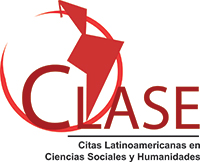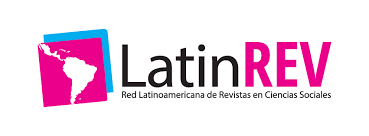EL CONSUMIDOR COMO ACTOR PRINCIPAL EN LA CULTURA DEL RECICLAJE
Abstract
The generation of solid waste (RS) is inherent to the consumption of products protected with various types of packaging, generally the products that are most protected are processed foods. The consumption of food is a basic base of human beings, who seek to satisfy their needs through products and services; However, with these human beings they are consumed and influenced by other factors, a reconversion to the desires is generated and the pattern is given to what is known as consumerism. Consumption has generated large flows of waste materials, in such a way that the social problems arising are visible since they cause the exploitation of raw materials, the depletion of resources, the loss of quality of the environment and the quality of life.
The objective of this paper is to analyze the factors that favor the culture of recycling in consumers of processed foods, through the process of observation and analysis of statistical information on recycling programs designed by the government of Mexico City. and if so, there is an awareness in the management of the RS among the consumers of processed products, as well as the perspective of the consumer regarding the change of habits and social benefits obtained.
Downloads
References
Diario Oficial de la Federación, Ley General para la prevención y gestión de integral de los residuos, México, 2003, p. 52.
Franklin, Enrique. B., Krieger, Mario, Comportamiento Organizacional Enfoque para América Latina, Pearson, México, 2011, p. 550.
Gaceta Oficial de la Ciudad de México, Ley General para la Prevención y Gestión Integral de Residuos Sólidos, Ciudad de México, 2016, p. 62.
Gaceta Oficial de la Ciudad de México, Programa para la Gestión Integral de Residuos Sólidos, Ciudad de México, 2016 pp. 1-62.
Greenpeace, Información Básica sobre Pilas y Baterías, México, 2006, p. 6.
Hofstede, G, Culturas y Organizaciones: el software mental, Alianza, Madrid, 1999, pp. 3-31.
Martínez-Hernáez, A., El dibujante de límites: Franz Boas y la (im)posibilidad del concepto de cultura antropológica, Scielo, 2010 p. 16.
Mercado H., S., Comportamiento del consumidor, Grupo Vanchri, México, 2011, p. 676.
Profeco, Consumo y consumismo, Ciudad de México, 2013, p. 44.
Rodriguez Martinez, A., Antonio Aragón, J., Ávalos Ruiz, K.I., "Cultura de reutilización y reciclaje en estudiantes de humanidades de primer y tercer grados", Sociogénesis, 2010, pp. 4-6.
Roth Deubel, A.-N., Politicas Publicas Formulacion, Implementacion y Evaluacion, Aurora, Colombia, 2002, p.4.
SEDEMA, Inventario de Residuos Sólidos de la Ciudad de México, México, 2015, p. 114.
SEMARNAT, Fundación Flor y Canto. Educación y gestión escolar para el desarrollo sustentable: residuos sólidos y consumo responsable, Tierra Firme S.A. de C.V., México, 2012, p. 100.
UNESCO, Conferencia mundial sobre las políticas culturales, Méxi-co,1982, p.6.
SEDEMA, http://data.sedema.cdmx.gob.mx/sedema/index.php/ponte-las-pilas-con-tu-ciudad, [8 de mayo de 2017].
SEDEMA, http://data.sedema.cdmx.gob.mx/reciclatron/#.WRBCBvk1_IU, [11 de mayo de 2017].
SEDEMA, http://data.sedema.cdmx.gob.mx/mercadodetrueque/, [19 de mayo 2017].
Fundación FIDA, Anta Martínez, María, http://www.ambientum.com/revistanueva/2006-10/culturareciclaje.htm, [20 de abril de 2017].
Copyright (c) 2018 Denarius

This work is licensed under a Creative Commons Attribution-NonCommercial-ShareAlike 4.0 International License.














